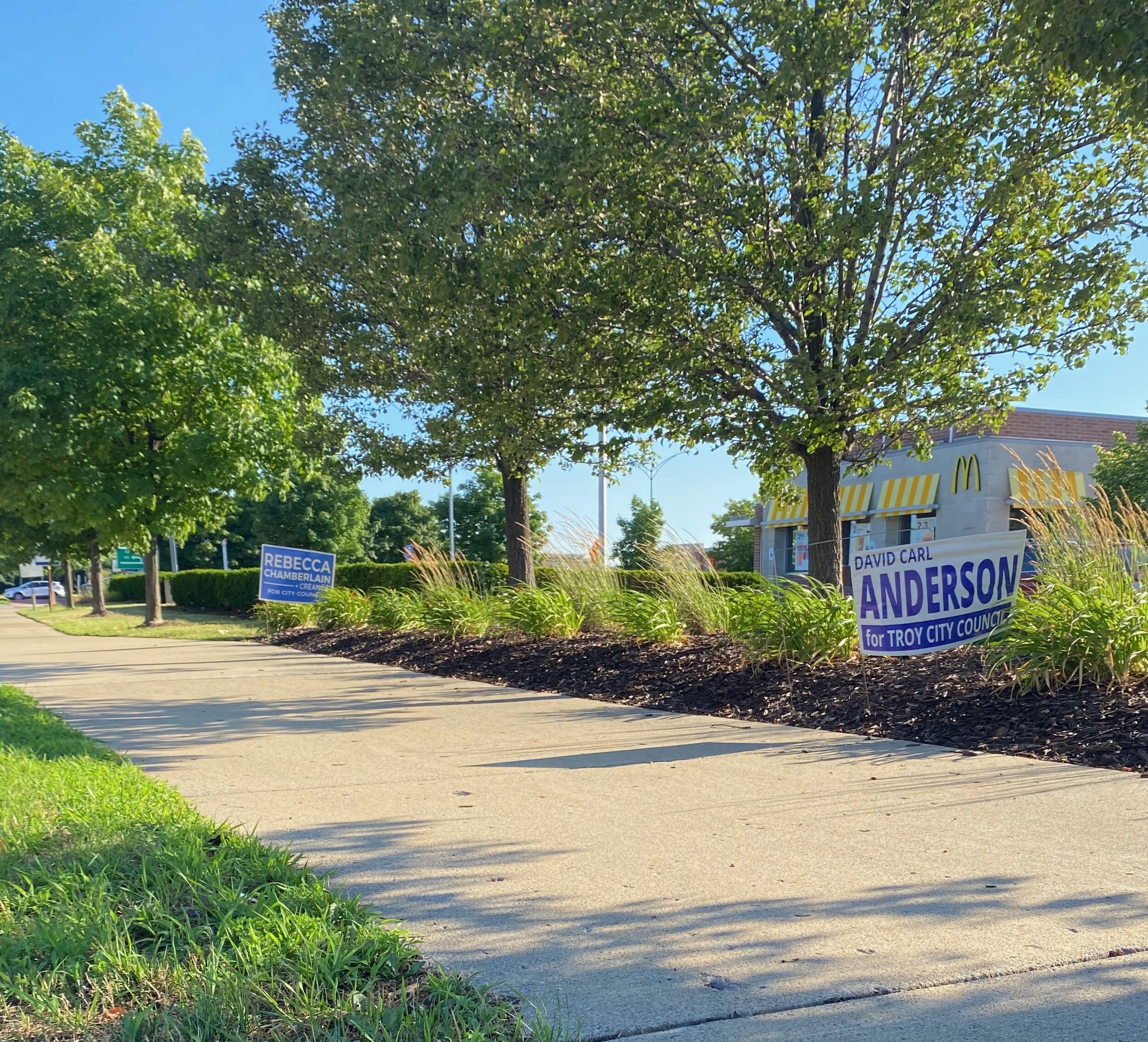Finding Our Voice in the Midst of a Pandemic
Voting gives citizens a voice, but what happens to our voice if we don’t have access to the information we need to make an informed vote?
By Riya Chakravarty
Opening the double doors, he is enveloped in a gust of warm air; feeling the anticipated six o’clock breeze disappear, he turns to shut the doors behind him. Recalling the people standing outside in the parking lot avidly calling, campaigning and conversing, he hopes for a sense of peace. Instead, he is greeted by a mass of diverse residents who share a similar hope, all crowding the lobby simply waiting. Waiting to make a difference with the mark of a pen.
Once at the front of the line, he gathers his documents, completes a transaction, and is sent off on his own, through the auditorium and into a booth. Sliding the curtain to the side, he enters a dimly lit room, empty save for a table merely feet away. He glances at the surrounding walls and places the future of his country on the sturdy table, ready to make a difference, ready to use his voice. Today, he is fulfilling his duty to his country by exercising his right to vote. Today is Election Day, but this “today” was four years ago; today in 2020, finding our voice to make a difference has become slightly more difficult.
This resonates with countless Troy residents who voted in the presidential election in the fall of 2016, and although the national election is months away, the local elections are right around the corner. On Aug. 4, the residents of Troy, Michigan will choose the future of their city by electing the next member of the city council. The current candidates, Rebecca Chamberlain-Creanga and David Anderson, have been campaigning for weeks with the hope that the community will realize that they are the better candidate. The citizens of Troy, on the other hand, have been on the receiving end of said campaigning, with the hope that they will come together and elect the candidate who will best satisfy their needs.
As bittersweet as the absence of traditional voting is, it seems as though absentee ballots have not been the only response to the COVID-19 pandemic in terms of the election process. Traditional methods of campaigning had to be re-visited and tweaked in order to follow state guidelines ensuring residents’ safety. In a city normally bustling with individuals actively campaigning during local elections, the streets have turned abnormally quiet as campaign platforms shift online.
Candidates advertise themselves by placing lawn signs in areas where residents will see them. Photo by Riya Chakravarty.
After doing some outreach to residents, former city council candidates and campaign managers, and recognizing my bias as an intern for one of the candidates, I was ready to learn just what it meant to be a voter in the midst of a pandemic. Though I lack the full understanding of what it means to truly have a voice in this community, I was curious to know if the voice of the community had become distorted, muted or even forgotten in the upcoming election due to lack of in-person communication from candidates.
Taking a look at the shift in campaigning, Hemanth Tadepalli, a rising sophomore at Kettering University who was appointed to be a representative on Troy City Council’s planning commission, recalls avidly campaigning during earlier elections, emphasizing the plethora of in-person communication — from door-knocking and legislative walks to town hall meetings and group phone banking.
Currently Chamberlain-Creanga’s secondary campaign manager, Tadepalli is unable to actively participate in the methods of campaigning he practiced prior to the pandemic; instead, his outreach consists of Zoom meetings and independent phone banking. Though he is unsure of the efficiency of this new way of campaigning, he notes the newfound difficulties of “making sure people are voting and making sure they are informed who the candidates are and why they are running.”
In the absence of town hall meetings where candidates could once share their stances, voters are beginning to rely on internet searches and online interviews. However, Tadepalli notes the downsides of technology, stating that some residents may not know how to access the necessary information in order to make an informed vote.
So have the voices of Troy really been distorted, muted or forgotten due to the shift of information online? It all depends on how comfortable residents feel with the quantity and quality of information available to them on the internet. For some residents the pandemic has yet to change their voice given the plethora of resources and information now available to them on the internet. Whereas other residents, like Barbara Dawson, don’t share the same mindset. Dawson, a homemaker, and normally politically active resident, is now unable to rely on her typical methods of gaining information on local candidates. Now rendered unsafe, in-person discussions were her neighborhood’s primary way of learning about the candidates, and she recalls discussing the upcoming local elections with her neighbors at local gyms and during sporting events. However, neighbors asking candidates questions during social gatherings, taking the information and discussing it with their neighbors to learn from each other is a facet of political decision-making that is now lost.
“Normal situations where we would see our neighbors or talk, aren’t happening,” Dawson says. Although she states that she could have tried harder to find the information online, she still would have missed “that personal one-on-one opinion from the neighbors” — a campaigning element essential to her neighborhood’s voice.
Supporting this idea of personal one-on-one communication, Sunil Sivaraman, a candidate with two electoral runs and one nomination run under his belt, states that the most effective method of campaigning is one-on-one (for example, campaigning door to door). However, he also emphasizes the prevalence of digital media, stating that if residents want to know more information about the candidates it is easy to find, adding that it all depends on “how much do you want to invest yourself into the city.”
According to Sivaraman, residents looking to find their voice can make informed votes by educating themselves. More specifically, as Tadepalli puts it, they need to understand who the right person for the job is. Though the absence of face-to-face communication may have dampened some voting spirits and left residents with a different means of gathering information, we must trust the voters of Troy to make a decision that brings prosperity to us all.
Though I am too young to make a difference with a pen, checking off boxes on a ballot, I can certainly use my voice to make a difference. But maybe one day you’ll see me at the polls, shutting the double doors behind me, waiting in line and entering a booth before finally picking up my pen to make a difference by using my voice — a voice which has yet to be distorted, muted or forgotten.
About the Writer:
Riya Chakravarty of Troy, Michigan
Riya loves to read and write (obviously) but is also involved in clubs like HOSA and forensics at her school. She likes playing basketball and hanging out with her friends in her free time, and her favorite thing to drink is coffee!

